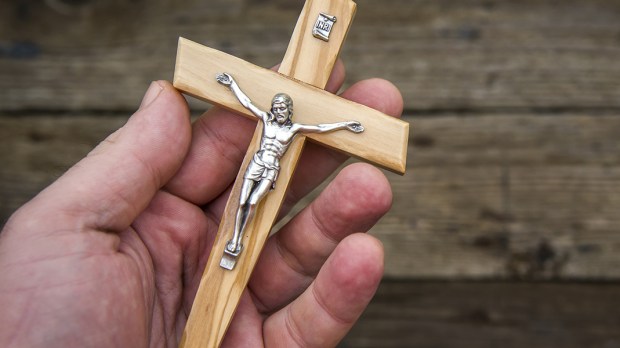Lenten Campaign 2025
This content is free of charge, as are all our articles.
Support us with a donation that is tax-deductible and enable us to continue to reach millions of readers.
Did you know that our word “Lent” comes from the Old-English word for “springtime”? This gives us a wonderful insight into what the days between Ash Wednesday and Holy Thursday are all about: a season when faith and the virtues of the Christian life grow and flower within our hearts and souls.
But, as Ash Wednesday approaches each year, one of the first questions we Catholics ask is, “What should I give up for Lent?” And it’s a fair question because, as we know, penance is a part of Lent.
So, how do you or your family and friends answer this question? Do you give up social media? Television? Chocolate or another favorite food? Soft drinks, coffee, or alcohol?
While it’s true that taking a break from any of those can be good for us, we also have to ask ourselves if these sacrifices are really helping us to grow in our lives as Christians. Lent isn’t only about doing penance.
So, we have to think of other opportunities for “good works” during the Lenten Season.
The traditional works of prayer, almsgiving, and fasting help us focus our attention on what is most important in life. And, if we can think of our Lenten penance as a “good work” to be taken on and shift our focus away from what we “give up,” we will find that our Lenten prayer and devotions will be richer and more fruitful.
More to read: A psychologist’s take: The 3 pillars of Lent are better for you than you know
But there’s more at stake because, as we reflect on all of this, we have to remember that Lent isn’t an end in itself.
The purpose of the season of Lent is to help us prepare for Easter when we will renew our baptismal commitment.
In the first centuries after Jesus, those individuals who wanted to become Christian spent months and even years preparing for baptism, which almost always took place in a special ceremony on the night before Easter. That night was anticipated by a time of prayer and fasting so that the soon-to-be Christians would be as ready as they could be to receive the gifts of Baptism, Confirmation, and Eucharist.
This is the origin of Lent. (Our contemporary celebration of the Rite of Christian Initiation of Adults [RCIA] is built around this model of initiation.) Those Christians who were already baptized would also pray and fast as they prepared to renew their own commitment to Christ by renewing their baptismal promises on Easter Sunday.
If we keep the themes of baptism and discipleship in mind as we consider the value of fasting and sacrifice, we quickly realize that fasting isn’t about just giving up something we enjoy. After all, there isn’t any real spiritual value in giving up chocolate or soft drinks.
The point of fasting is that we give up something that we enjoy to help us pay better attention to our deeper hungers and desires.
Each one of us lives with needs—physical needs and the need for love, security, and community—that we often bury or try to hide by filling our lives with “stuff” and relationships that can never really make us happy or give us peace.
And so, Lenten fasting means that we set aside those things with which we self-medicate so that we can be free to recognize what our real hungers and desires are—including our desire for God.
Only God can truly satisfy the deepest desires and needs of our hearts.
These ideas of baptismal renewal and our deepest hungers are at the heart of our Readings on this Third Sunday of Lent. As we hear the story of the woman at the well, we are being invited to remember our own baptism and to think about how our lives have been—and are being—transformed by the Living Water of Jesus.
Our prayer, fasting, and works of charity and mercy should be helping us become more aware of how the grace of Baptism is at work within us.
In the end, every Easter Sunday we are given an opportunity to renew the promises of our baptism. This means rededicating ourselves to live as Christians in the world and to continuing the mission of Jesus, especially for the poor and those in need.
The 40 days of Lent are a time for us to get back to the basics of who we are as followers of Jesus.
As we think about Lent as a season of discipleship and spiritual renewal, give some thought to what it is in your life that takes up your time and energy.
Do you use technology and social media responsibly? Do you battle addictions or find yourself cultivating unhealthy relationships? Do you often find yourself angry or impatient with other people or prone to gossip? Do television and other distractions prevent you making time for prayer and reflection? How available are you to your family, friends, and faith community?
Words of Wisdom: “Lent is a time of returning to God… a time of refocusing, of re-entering the place of truth, of reclaiming our true identity.”—Henri Nouwen

